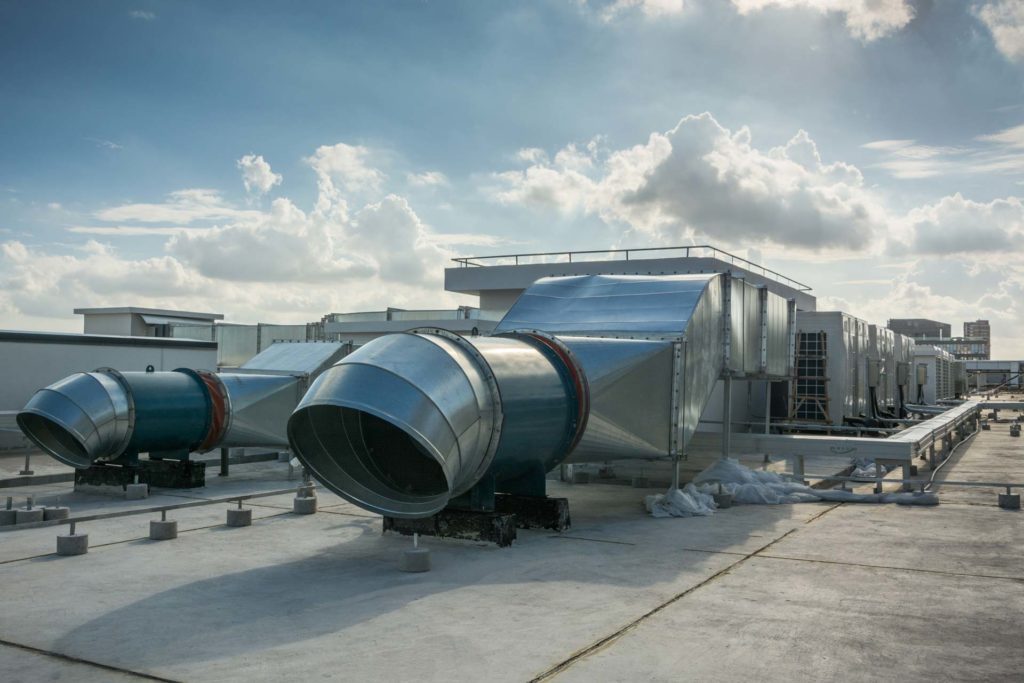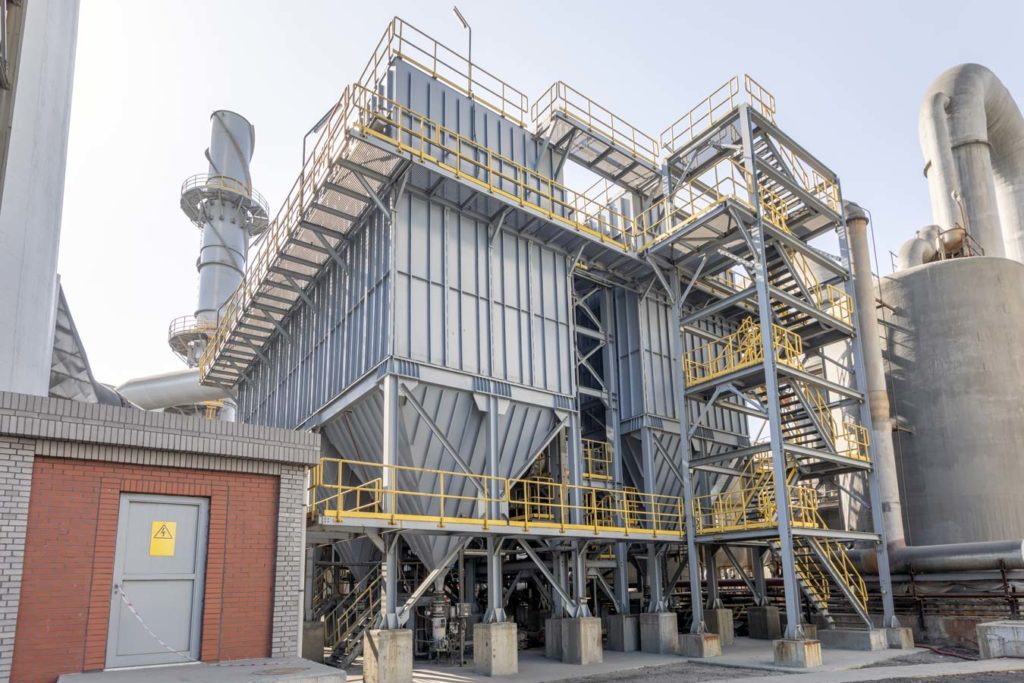In power generation, the choice of filtration materials is pivotal in optimizing efficiency and environmental impact. Fiberglass and Teflon (the brand name for PTFE, or polytetrafluoroethylene) are the most popular baghouse filter materials. Each has different preferred uses, but both have top-quality capabilities.
Understanding their unique properties and applications is essential for ensuring peak performance and longevity in these critical systems. Let’s explore further the distinctive features and benefits of fiberglass and Teflon filters in the context of biomass and coal-fired power generation.
What Are Fiberglass Air Filters and Teflon Air Filters?
Fiberglass air filters consist of fine strands of glass fibers. These fibers weave together meticulously to form a dense yet porous material capable of trapping particles of various sizes.
On the other hand, Teflon filters, also known as PTFE filters (polytetrafluoroethylene), are constructed from a synthetic polymer renowned for its non-stick and heat-resistant properties. This material offers exceptional chemical resistance and durability, which is ideal for demanding filtration environments.
What Are These Filters Used For?
In baghouse filtration systems, fiberglass and Teflon filters play pivotal roles in removing particulate matter from industrial exhaust gases.
Baghouses are essential to air pollution control systems. Companies use them for industries ranging from cement production to power generation, pharmaceutical manufacturing, and food processing. By capturing harmful pollutants before they can escape into the atmosphere, these filters contribute to environmental protection and regulatory compliance.
Why Do Teflon and Fiberglass Air Filters Stand Out?
Glass fiber and Teflon filters are more efficient, durable, and versatile than many other filters. Unlike conventional filter materials like fabric or paper, they offer distinct advantages.
Filter Efficiency
Fiberglass and Teflon filters offer high particle capture efficiency, even for ultrafine particles that pose significant health risks. Their intricate structure provides ample surface area for particle adhesion, ensuring thorough filtration without compromising airflow.
Filter Durability
Both Teflon and fiberglass are very durable. They can handle difficult operating conditions, including high temperatures, corrosive gases, and abrasive particles. This longevity translates to extended filter life and reduced maintenance requirements, minimizing downtime and operating costs.
Filter Chemical Resistance
Teflon filters thrive in situations where chemical exposure is prevalent. Their resistance to acids, bases, and solvents sets them up for success in chemically aggressive environments, protecting both the filter integrity and downstream equipment.
Filter Temperature Resistance
Teflon filters also stand out for their incredible heat resistance. This attribute is beneficial in industries with elevated temperatures, including metallurgy and incineration, where hot gases must be filtered without compromising filter integrity.
How Do These Types of Filters Differ?
While both filters are highly beneficial, they have a few distinct differences.
As mentioned above, Teflon filters outshine their fiberglass counterparts in terms of chemical resistance, making them a go-to for applications involving corrosive gases or volatile organic compounds (VOCs). Teflon filters also offer superior heat resistance compared to fiberglass filters, so they can more easily manage high-temperature processes without melting or degrading.
With regard to cost, fiberglass air filters come out on top as the option that is usually more affordable. When corrosive chemicals or extremely high temperatures aren’t a concern, fiberglass filters are a more cost-effective solution that doesn’t compromise quality.
Overall, the choice between fiberglass filters and Teflon filters hinges on the specific needs of the application, balancing factors such as filtration efficiency, durability, chemical resistance, and budget constraints.
Fiberglass and Teflon filters are both reliable standbys in the realm of baghouse filtration. They’re efficient options for various uses and industries thanks to their ability to work effectively even in harsh conditions and – in the case of Teflon filters – resist chemical corrosion. Each material offers unique benefits, but both are essential to industrial longevity and air quality improvement.
Choose Your Best Filter with Baghouse America
At Baghouse America, we offer a wide range of filters for every need. We can help you choose the correct material and design for your unique circumstances.
We’re happy to offer suggestions for which fabrics, finishes, and styles can help improve your filter life and save on operating costs. Our filters are made to order based on your exact specifications and can be stored in one of our warehouses for future use. When you buy directly from us, you’ll cut out the costs of going through a middleman.
With more than 20 years of experience and hard-won wisdom, we’re here to help you go beyond buzzwords to choose the products that are the best fit for your facility and workflow. Our mission is to provide you with premium products at a cost-effective price point – and to help our customers make an impact on sustainability along the way. Contact us today for a thorough assessment of your needs and a quote.

